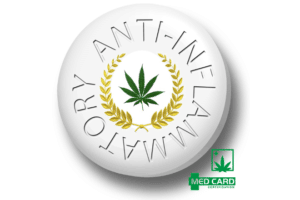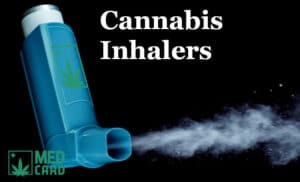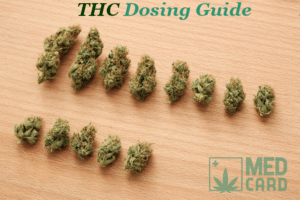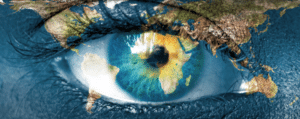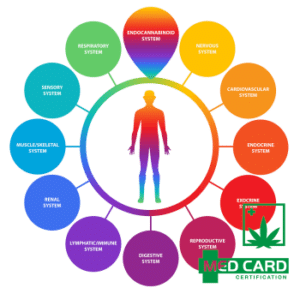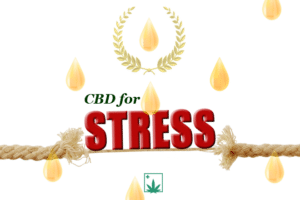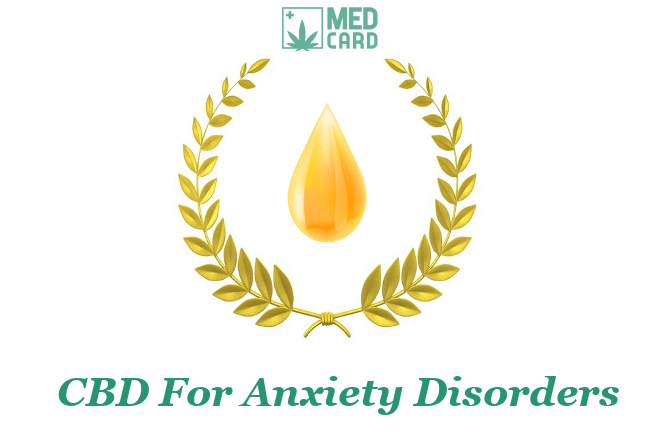
How Is CBD Oil Used To Treat Anxiety?
Can anxiety be treated with CBD? What does science say about the effectiveness of CBD oil for treating anxiety? In this post, we’ll take a look at some of the evidence to support CBD’s efficacy and safety as a natural alternative to prescription anxiety medications.
In recent years, the popularity of CBD oil has rocketed skyward, in large part due to its anxiety-busting abilities. In fact, the treatment of anxiety disorders is among the top reasons for CBD use in the U.S.
Many patients suffering from conditions such as PTSD and OCD find that CBD oil not only offers relief from ongoing feelings of anxiety but can also significantly lessen or even prevent sudden panic attacks. CBD has also been shown to provide relief for a number of physical effects that can come with anxiety such as digestive disorders and headaches.
What is anxiety?
Anxiety disorders are among the most common mental health conditions in the nation, afflicting almost one in five American citizens. The Anxiety and Depression Association of America reports that over 40 million adults in the U.S. (18.1% of the population) suffer from some form of anxiety disorder.
Anxiety disorders are highly treatable with prescription medications. However, unlike CBD oil, many of these drugs can come with serious and lasting side effects.
Sadly, a mere 37 percent of anxiety patients will seek professional help. This is likely due to the fact that some anxiety patients see their condition as a character flaw or the result of their stressful lives. However, in most cases, anxiety disorders are thought to be due to a chemical imbalance in the brain. The causes of this imbalance are still not clear.
Anxiety is actually a natural response to stress. For early humans, anxiety was a necessity for survival, as it heightened the senses in threatening situations. In modern-day life, anxiety disorders can manifest in several ways producing wide-ranging psychological and physical symptoms that can have a profoundly negative impact on day to day existence.
In addition to being considered a mental health issue, anxiety can also produce physical symptoms such as bowel irritation, back pain, trembling, accelerated heartbeat, fatigue, excessive sweating, mood swings, insomnia, paranoia, and numbness and tingling in the extremities.
The US Department of Health and Human Services website reports that there are five major types of anxiety:
- Generalized Anxiety Disorder (GAD) is considered to be the most common form of anxiety. The symptoms include excessive tension and worrying.
- Post-Traumatic Stress Disorder (PTSD) is a debilitating condition, generally induced by exposure to extreme violence, abuse, and/or life-threatening situations. Military veterans who experienced terrifying combat situations and victims of abuse and domestic violence are the most likely to suffer from PTSD.
- Obsessive-Compulsive Disorder (OCD) generally presents as compulsive and/or repetitive behaviors. Patients suffering from this disorder are subjected to uncontrollable worrisome thoughts that severely impact day to day life.
- Social Anxiety Disorder is brought on by simple social activities. A patient suffering from this condition might experience extreme self-consciousness to total emotional paralysis in social situations. In the worst cases, patients avoid all social interaction.
- Panic Disorder is a debilitating condition causing a patient to experience sudden bouts of terror and panic, often in situations where there is no evidence of life-threatening danger. During a panic attack, a patient may have physical symptoms such as hyperventilation, difficulty breathing, elevated heart rate, dizziness, chest pain, and tension. In extreme cases, the patient may require hospitalization or emergency care.
What does science have to say about CBD and anxiety?
In recent years, researchers have begun to explore the biochemical mechanisms of CBD. Today the evidence in favor of CBD for treating anxiety is mounting.
According to the data, it appears that CBD has the ability to increase serotonin levels in the brain. Serotonin is the hormone responsible for turning off the anxiety response when danger has passed (a process known as fear extinction). Serotonin instills a sense of well-being, safety, and relaxation. Oftentimes anxiety patients exhibit unusually low levels of serotonin.
When the brain ascertains that a threatening situation has abated, it usually releases a neurotransmitter called anandamide, which in turn triggers serotonin production. Research indicates that CBD has the ability to mimic anandamide to some extent to increase serotonin production and uptake in the brain.
Research studies on CBD and anxiety
Below are summaries of just a handful of studies into CBD’s ability to relieve symptoms of anxiety. We have included links at the end of the article for readers who would like more details on these studies.
- In a recent research study on lab mice, it was proven that serotonin levels increased and anxiety was reduced with the application of CBD. The researchers concluded that CBD “exerts therapeutically promising effects on human mental health such as inhibition of psychosis, anxiety, and depression.”
- In a 2015 paper from the journal Neurotherapeutics, researchers discussed their interpretation of an earlier study on CBD and anxiety. The paper determined that disorders such as panic disorder, generalized anxiety disorder, and social anxiety disorder were successfully treated with CBD.
- A team of researchers at the Institute of Psychology in Rio de Janeiro (Laboratory of Panic and Respiration) studied CBD’s effects on anxiety in animals. Their 2009 report in the British Journal of Pharmacology states, “Studies involving animal models, performing a variety of experiments on [anxiety] … suggest that CBD exhibited anti-anxiety and antidepressant-like effects… CBD can attenuate acute autonomic responses to stress and its delayed emotional consequences by facilitating 5-HT1A receptor-mediated neurotransmission.” In other words, researchers determined that CBD does indeed have the ability to alter the response to events, thoughts, and emotions which can trigger anxiety.”
- Dr. Marcelo Ferro, lead author and biochemist with Nutrition Formulators, Inc., reviewed 76 articles written over the course of two years. Dr. Ferro concluded that 70 percent of the research around CBD indicated a positive outcome. “After spending 10 months reviewing the research,” said Ferro, “I was surprised at how many people with anxiety and depression could be helped by incorporating CBD into their lives, but I was also aware how important it is to do more research, especially on the impact of CBD on liver function.”
How is CBD oil used to treat anxiety?
Anxiety patients have numerous options for CBD-infused supplements. These range from raw, dried hemp flower to pure CBD. Some of these delivery methods take effect quickly, others take effect more slowly but offer longer-lasting effects. Which method is used depends on the patient’s symptoms and other circumstances such as time of day.
Here are the most common CBD products used particularly for treating anxiety:
- Dried hemp flower looks and smells exactly like marijuana. The only difference is that hemp, by law, is essentially devoid of THC. Hemp is so low in THC that mass consumption of hemp flower would not cause intoxication as marijuana does. Like marijuana, hemp flower can be smoked or used in a dry herb vaporizer. Effects are almost instantaneous. However, smoking comes with potential health risks such as lung problems and high blood pressure. Hemp flower can also be used for cooking in the same way as marijuana.
- CBD vape pens contain an oil base along with either full-spectrum CBD oil or purified CBD. As with smoking, the effects of vaping CBD oil happen almost instantaneously as the CBD is absorbed directly into the bloodstream via the lungs. However, vaping, like smoking, has been known to exacerbate lung health problems such as asthma.
- CBD oils and tinctures consist of a base of alcohol or vegetable oil and usually come packaged in dropper bottles. Both types of drops can be used sublingually (under the tongue) or orally and can also be added to foods. The effects are slower than smoking or vaping but less harmful to health.
- CBD oil capsules are another form of delivery for CBD-infused oils. The gelatin capsules can be filled with a variety of CBD formulas from full-spectrum CBD oil to purified CBD. Gelcaps melt quickly in the stomach. When taken on an empty stomach, gelcaps deliver their contents directly into the stomach where a percentage is absorbed into the bloodstream. Taking CBD capsules with a meal extends their onset time and the timespan of their effects as the oil must pass through the digestive system.
- CBD edibles generally come in one of two forms — either candies or baked goods. However, there are other edible CBD products. CBD candies such as gummies melt quickly in the stomach and thus act much like capsules. CBD-infused baked goods such as brownies act like capsules taken with a meal as they must also traverse the entire digestive system. They take longer to reach full effect but also provide longer-lasting effects.
What dosage of CBD do anxiety patients take?
Most CBD products list the suggested dosage and total dosage on the package. Raw hemp flower, too, should come with a lab report telling the buyer the percentage of CBD in the flower. One gram equals 1,000 milligrams. So a 1 gram bud that has 20 percent CBD would have 200 milligrams of CBD.
For first-time users of CBD products, a very small dosage is recommended — for adults, no more than five or ten grams depending on body size. If no adverse effects are noticed then the dosage can be increased over the course of a few days until the desired level of relief is obtained.
As with most herbal remedies, CBD’s effects vary from patient to patient. Most anxiety patients report some measure of relief at dosages of 10 to 25 milligrams every four hours. Dosages up to 50 milligrams are also not uncommon in more severe cases. Higher doses, although well-tolerated, generally do not produce more profound results and might result in unwanted side effects such as lethargy and drowsiness.
A final word of advice: Anxiety is a serious medical condition that can result in other health issues. When taken together the effects can decrease quality of life and even shorten lifespan. As such, all anxiety disorders should be treated under the guidance of a qualified healthcare professional. Although CBD products can easily be purchased over the counter, patients are advised to discuss their use of CBD products with their doctor.
VIDEO: Joe Rogan "CBD is One of the Best Things I've Ever Tried for Anxiety"

Medical Marijuana Links:
Additional sources of information
list of studies on CBD and Anxiety
- The anxiolytic effect of cannabidiol on chronically stressed mice depends on hippocampal neurogenesis: involvement of the endocannabinoid system
- Is there a role for cannabidiol in psychiatry?
- Cannabidiol as a Potential Treatment for Anxiety Disorders
- The Endocannabinoid System and Anxiety
- CBD regulation of emotion and emotional memory processing: relevance for treating anxiety-related and substance abuse disorders
- 5-HT1A receptors are involved in the cannabidiol-induced attenuation of behavioural and cardiovascular responses to acute restraint stress in rats




